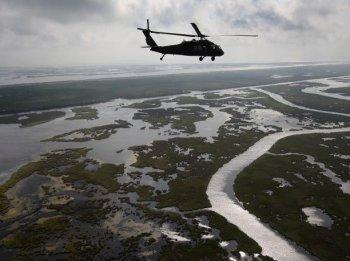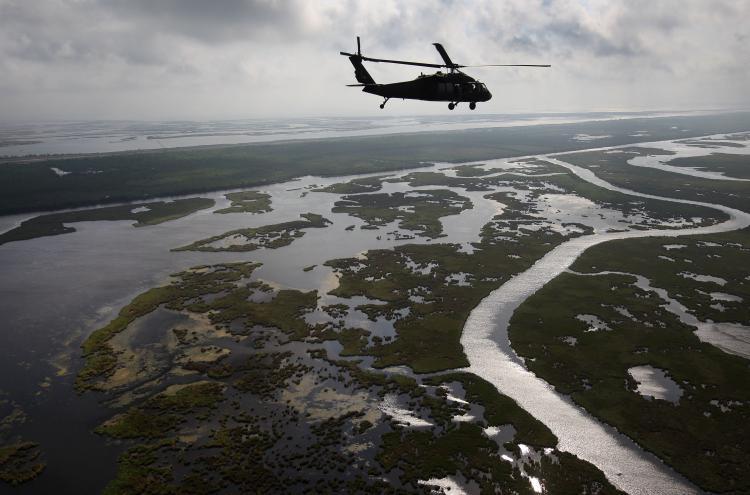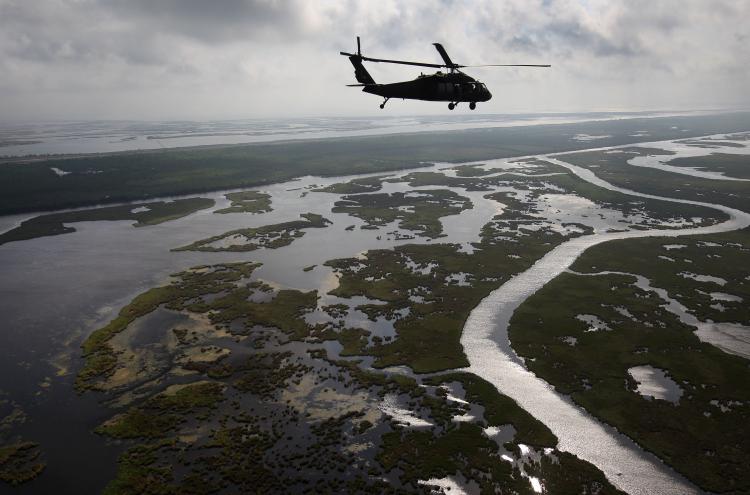Coast Guard Blames Lax Safety for Deepwater Deaths
Systemic safety problems at Transocean contributed to the deadly explosion on the the mobile offshore drilling unit Deepwater Horizon on April 20 last year.

A Louisiana National Guard blackhawk flies over marshland on April 19. A year after the BP oil spill, BP claims that most of the oil has been removed. Louisiana Wildlife and Fisheries says, however, that much of the cleaning has been superficial, as the oil has seeped into the soil, killing marshes and further eroding the state's damaged delta ecosystem. John Moore/Getty Images
|Updated:
Mary Silver writes columns, grows herbs, hikes, and admires the sky. She likes critters, and thinks the best part of being a journalist is learning new stuff all the time. She has a Masters from Emory University, serves on the board of the Georgia chapter of the Society of Professional Journalists, and belongs to the Association of Health Care Journalists.
Author’s Selected Articles






